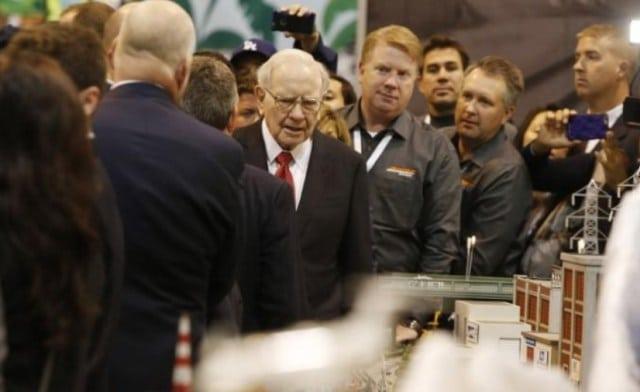Warren buffett caught lying about bitcoinblockchain berkshire hathaway fully investing in distribute

Most of them knew next to nothing about bitcoin. He compared it to gold, to major fiat currencies. Yet he remains steadfast in the opinion that the industry will come around to embracing the currency. But then the pool of clients began to dry up, even as competition for their business grew fiercer. And while naysayers still abound, big Wall Street firms are more curious than skeptical.

Nobody even knew the real identity of bitcoin's creator, who used the handle Satoshi Nakamoto. No less a figure than Warren Buffett is on record as calling bitcoin "a mirage. Initially bitcoin was simply his hedge against what he sees as a dangerously overleveraged world.

Like what you see? Too many governments were stockpiling gold as a backstop to their economies. Lenihan's first impression of Silbert was that "he looked like he was about 12 years old. Nearly three years later, Silbert's bet doesn't sound quite so crazy anymore. Silbert began buying bitcoins in the summer of

No government will ever support a virtual currency that goes around borders and doesn't have the same controls. Silbert's plan was to kick-start the fund with about two-thirds of the company stash; the remaining money would be kept on SecondMarket's balance sheet. At one time he had been something of a gold bug, but no longer. As a high school junior, he landed a part-time job at a Washington brokerage firm.

He was also putting a lot of company money on the line. The news that day would only reinforce it — and would give even some of SecondMarket's employees cause for concern. In early January, DCG closed a deal to buy CoinDesk, the most popular of the numerous news outlets that have sprung up to cover the bitcoin industry. Despite the potential, "there is a real chance that it will go to zero and this was a passing fad.

By the time he heard about bitcoin, he felt a little like Noah in his ark, looking out on a world awash in debt. After spending his early twenties helping to liquidate failed companies, he then built SecondMarket on the bones of Wall Street's failures, its toxic assets, bad debt repackaged as good debt, on other men's missed opportunities. Make sure you're getting it all Independent and authoritative analysis and perspective for the banking industry. Even his wife was in the dark at first.

The company's long-term debt, in keeping with Silbert's business philosophy, was zero. But then the pool of clients began to dry up, even as competition for their business grew fiercer. At one time he had been something of a gold bug, but no longer. Among the first to recognize the interest that bitcoin and its underlying technology would hold for Wall Street, Silbert has found himself testifying before the New York State Department of Financial Services and coaching asset managers who manage tens of billions of dollars.

Once he'd bought his first batch of bitcoins, though, he didn't wait long to buy more. By the time he heard about bitcoin, he felt a little like Noah in his ark, looking out on a world awash in debt. Yet he remains steadfast in the opinion that the industry will come around to embracing the currency. Throughout the presentation, however, Silbert made no attempt to hide his enthusiasm.

He asked whether the firm would like to invest in Restricted Stock Partners. It was a tough time for the established players, but for SecondMarket it was a bonanza. Make sure you're getting it all Independent and authoritative analysis and perspective for the banking industry. To the chagrin of idealistic techie types, Silbert is not shy about appealing to the profit motive, and often touts the potential for bitcoin's price to rise. He had caught the bug.

Having built a company at the epicenter of bitcoin, Silbert is now making use of its position to strengthen the industry as a whole. Alongside this he built a profitable bitcoin trading desk to serve institutions and high-net-worth individuals. The simple phone brokerage aimed to make a market for investors with assets they were having trouble unloading through traditional means.